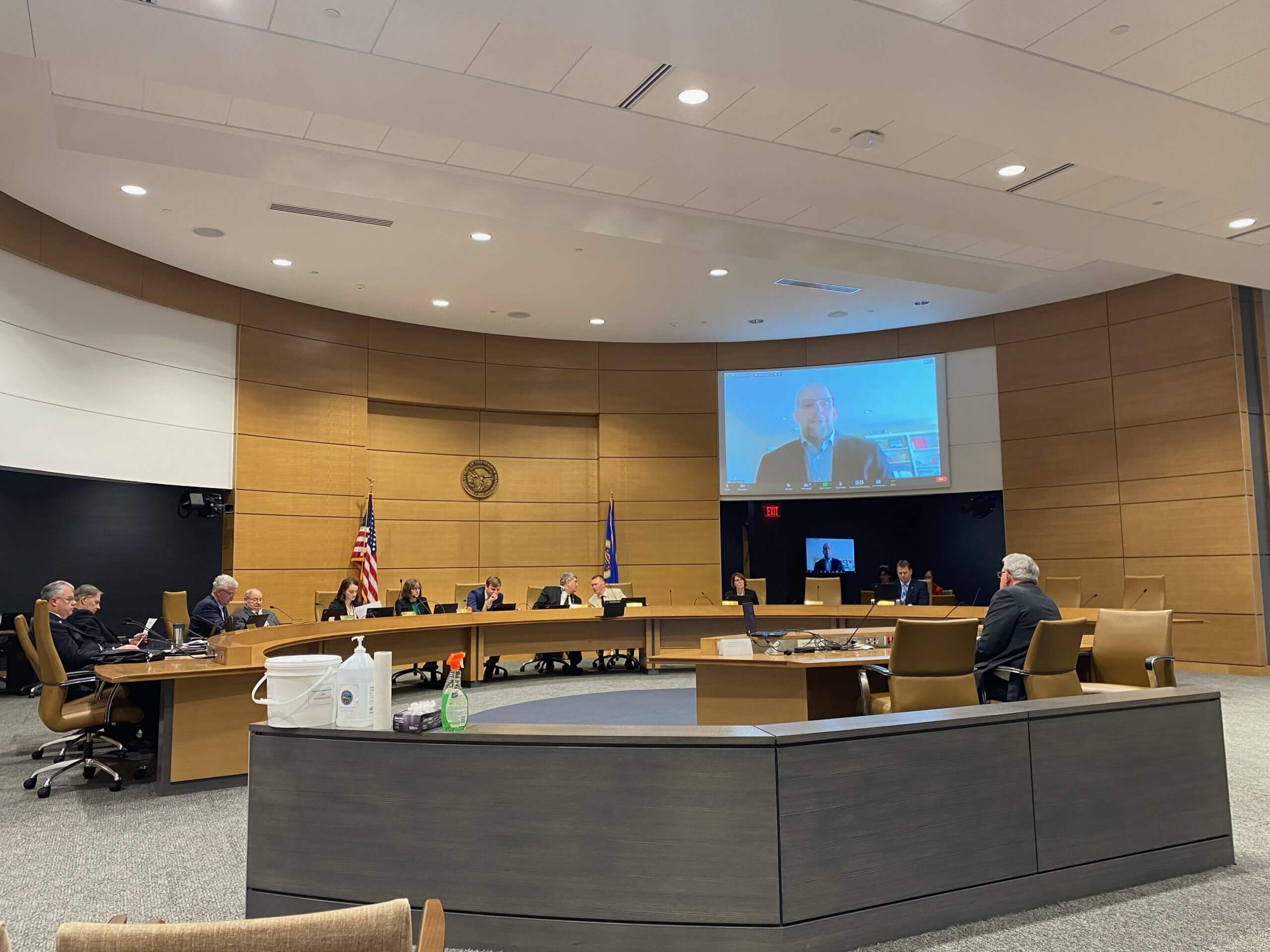 Reading Time: 3 minutes
Reading Time: 3 minutes
Above: Minnesota Corn Growers Association President Bryan Biegler virtually testifies in support of a bill to establish a state-run soil-health grant program.
An effort supported by several state agriculture groups to establish a state-run soil-health grant program has taken its first step.
On Monday, a bill to establish the program, SF3737, was heard by the state Senate Agriculture and Rural Development Finance and Policy Committee. Sponsored by Sen. Bill Weber (R-Luverne), the bill would appropriate $10 million for the program over the next two fiscal years. It would also require the state Department of Agriculture, in consultation with the University of Minnesota and other stakeholders, including agricultural organizations, to develop a statewide soil-health management plan.
“Farmers face barriers to implementing soil-health practices, but there is great interest and an opportunity to scale up soil-health practices,” Minnesota Corn Growers Association (MCGA) President Bryan Biegler said during testimony. “… On behalf of the Minnesota Corn Growers Association, we appreciate your consideration, and thank Sen. Weber for bringing this bill forward.”
To help Minnesota corn farmers be among the most sustainable in the U.S., MCGA invests in conservation-focused research, including farmer-led Innovation Grant projects. MCGA also advocates for public policies that take a farmer-led approach to addressing rising concerns about environmentally sound farming.
Over the past year, to provide Minnesota farmers with additional opportunities to implement soil-health practices, MCGA has worked with a coalition of ag and environmental groups on a soil-health program. Those efforts have formed the basis of Weber’s bill.
SF3737 would make grants available for a variety of projects, including efforts to:
- increase the quantity of organic carbon in soil through practices such as reduced tillage, cover cropping, manure management, precision agriculture, crop rotations, and changes in grazing management;
- integrate perennial vegetation into management of agricultural lands;
- reduce nitrous oxide and methane emissions through changes to livestock, soil management, or nutrient optimization;
- increase the usage of precision agricultural practices;
- enable the development of site-specific management plans; or
- enable the purchase of equipment, technology, subscriptions, technical assistance, seeds, seedlings, or amendments that assist with the above efforts;
The program would allow farmers to determine what practices are best for their operations and implement them as they see fit. It would also set a framework for the state Department of Agriculture to distribute grants in a geographically fair manner, across farm types, practice types, and accounting for financial leverage opportunities.
Additionally, it could position Minnesota well to receive federal funds to support soil health, through USDA conservation programs or new initiatives.
Removing barriers
Biegler, who raises corn and soybeans and works with local farmers on implementing conservation practices, said implementing such efforts is not without challenges.
The machinery needed to reduce tillage can be more specialized, he said, which requires additional investment. There can be cost savings, he added, but there is a financial risk at first if the practices are not done right.
Biegler also said he appreciates that the proposed grant program would be voluntary and allow farmers to determine what conservation practices are best for them. He and bill supporters noted how the program could help farmers purchase the expensive equipment needed to implement conservation practices.
“By providing a grant program with broad reach, we can help (farmers) continue to do what is best on their farms and remove some of those prohibitive barriers, financially, that they face,” said Amber Glaeser Director of Public Policy at Minnesota Farm Bureau.
MCGA thanks Weber for introducing the bill and working to ensure that Minnesota farmers have the tools they need to implement soil-health practices. Other partners on the bill include:
- Minnesota AgriGrowth Council;
- Minnesota Catholic Conference;
- Minnesota Crop Production Retailers;
- Minnesota Farm Bureau Federation;
- Minnesota Farmers Union;
- Minnesota Milk Producers Association;
- Minnesota Pork Producers Association;
- Minnesota State Cattlemen’s Association; and
- The Nature Conservancy.
Be sure to follow the MCGA blog and its social channels (Facebook, Twitter) for updates throughout the state legislative session. You can also follow Amanda Bilek, MCGA’s Senior Public Policy Director, on Twitter (@AjBilek).

